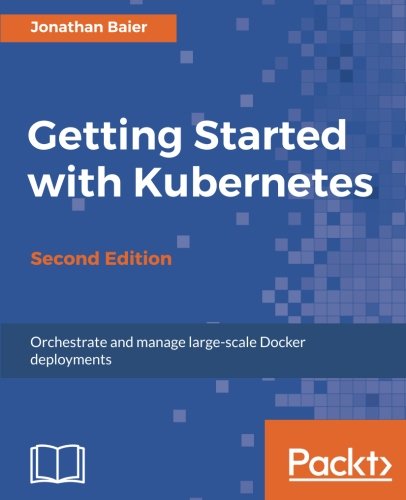This website has commenting support using static HTML pages. Traditionally, for a website to support commenting required hosting a comment management system to gain dynamic page generation and interactive page content editing. Today, there are plenty of services offering comment systems that can even be implemented on a static HTML website like this.
Generally these services work by providing a website owner some JavaScript code to embed on their site (or a Wordpress or Drupal plugin/module) that runs dynamically on each page load. The JavaScript retrieves comments for the given page, displaying them sometime after the page loads.
This means the comment text is not part of the page contex that Google or other search engines will index.
This means people don't register with the website to leave comments on the site. Instead they register with the commenting service, and the service manages all sorts of things like verification and blocking spammers.
What is a distributed commenting system? An HTML script tag to load a static file that will ping an api that will serve you comments.
References
-
http://vivastart.com/disqus-intensedebate-alternatives/
-
http://mytimemattersblog.com/blog-commenting-platforms-the-bad-and-the-good/ - Review of most of the systems mentioned below. The guy has Disqus on his site
Disqus
Their website claims Disqus -
http://disqus.com/ is powering communities on over 3 million websites. It is almost a community site in its own right, because commenters register themselves with Disqus before they can comment on sites that use Disqus.
It's free to sign up with Disqus, and signup is trivial. They have a Wordpress plugin and Drupal module to provide tighter integration with those CMS's.
It's possible to earn revenue with Disqus, because Disqus has mechanisms to recommend comment both from the host site and other sites. Other sites can arrange with Disqus to promote their content, for a fee, and host sites earn revenue for every click that leads to referred content.
Disqus supports having a moderator team. Moderators can receive email notifications when any comment gets flagged. Comments that are flagged can be auto-hidden. This means your readers can help you remove abusive or spam comments off the site.
Administrator tasks can be taken care of via e-mail, on the web page using the Disqus widget, or else in the administrative back-end on the Disqus website.
As noted earlier, Disqus comments on a page aren't part of the page but are added after the page loads. Disqus does let sites export comments from Disqus, and then in some cases the Disqus CMS plugin lets you import the comments into the native commenting system. That transfers the comment from Disqus into the CMS.
There is no cost to installing/using Disqus. There doesn't even seem to be a Freemium model, where there's extra special features at an extra special price.
Each Disqus member gets access to a stream of activity across sites where they've left comments. That's why I say it's almost a community site in its own right. Each member has a dashboard on
disqus.com to view that activity, or they can view it on any site that uses Disqus. They also let you follow other Disqus members, presumably to see their comments.
It would be obvious for them to add an activity stream for new postings on websites that you could follow - but that feature isn't there.
Members can easily share comments out to social networks etc, that then helps spread word about the content.
They directly support Blogger, Wordpress, Tumblr, Squarespace, Typepad, Movable Type, Drupal, Joomla and "custom" (HTML)
Reviews
http://www.propublica.org/getinvolved/item/meet-our-new-comments-system-where-you-can-share-your-stories-too - ProPublica (major political news website) switched to Disqus
http://www.greencarreports.com/news/1086038_green-car-reports-switches-to-disqus-for-reader-comments - Green Cars Reports
http://www.cultofmac.com/83268/housekeeping-weve-switched-to-discus-for-comments-please-be-patient/ - Cult of Mac switched to Disqus in 2011, but today the comments box says it's powered by Vanilla Forums and is full of spam gunk. The Vanilla Forums website doesn't talk about its use as a distributed commenting system, but that the comments on this blog post are full of spam is a bad sign.
http://bloggerjet.com/gueststory-why-i-switched-from-intensedebate-to-disqus/ - A blogger.com user who found their commenting system bogus (it is), switched first to Intense Debate, then had large problems with it (I.D. is unreliable), and then switched to Disqus and is happy.
http://archive.learntoduck.net/business/intense.debate.disqus/ - Another who switched from native comments, to Intense Debate, then finally to Disqus after having problems with I.D.
http://www.superfastbusiness.com/web/why-i-changed-to-the-disqus-commenting-system/ - Postive review. Claims that Disqus has SEO benefits because the search engines can index Disqus comments.
http://minimaxir.com/2013/01/its-a-metaphor-maybe/ - Has lots of bad things to say about both Livefyre and Facebook Comments. Has been a frequent commenter on Techcrunch, liked the FB comment system they had, and bemoaned the switch to Livefyre. However, has since switched to Disqus.
http://www.sfexaminer.com/sanfrancisco/site-update-examiner-switching-back-to-disqus-comments/Content?oid=2169153 - The SF Examiner and Washington Examiner had used Disqus, then switched to a home-grown commenting system, grew tired of fighting spam, and has switched back to Disqus
http://mashable.com/2011/03/01/examiner-facebook/ - Examiner.com had adopted the Facebook Comments system. At the time FB launched their system, Examiner was presented as one of their premier partners. HOWEVER, by July 2013
Examiner.com switched to Disqus. I don't know of a public announcement, however one of the Examiner writers posted this: http://www.examiner.com/article/examiner-com-is-becoming-more-social
Livefyre
Their model is similar to Disqus, though they use a Freemium business model rather than free+advertising.
See
http://web.livefyre.com/comments/ for the free commenting system. They also have Enterprise grade systems they call StreamHub.
I don't know enough about the service (don't actually use it) to say much more than this. It looks very similar to Disqus, may have a slightly more comprehensive feature list.
They directly support Wordpress, Tumblr, Joomla and "custom" (HTML)
Reviews
http://www.wpbeginner.com/opinion/reasons-why-we-switched-away-livefyre/ - June 2013, gives a long list of deficiencies in Livefyre. Probably the most egregious is what they call "Like Spam," which means that when someone Likes a comment they're rewarded with a link back to their website and the link doesn't have rel=nofollow. Spammers have latched onto this to generate backlinks.
http://techcrunch.com/2013/01/22/we-want-you-back/ - They grew tired of spammers and assholes making life tough on their original commenting system. They first switched to Facebook Comments, but that drove away the regular commenters. After TWO YEARS of experimenting with FB they realized they needed to bring commenters back. They chose LiveFyre in order to build a customized commenting system.
http://www.technobaboy.com/2013/02/12/disqus-2012-review-livefyre/ - Had Disqus on a Wordpress blog. Found that Google was stumbling across a lot of crawl errors thanks to Disqus, and he didn't want the negative SEO impact. Has switched to Livefyre, but I see spam comments.
http://ameenafalchetto.com/goodbye-livefyre-make-commenting-friendly/ - Dumped LiveFyre for native WP comments for a list of reasons. Key seems to be aesthetics, and because she felt Livefyre didn't treat commenting with its appropriate gravitas or something. - http://www.thesaleslion.com/livefyre-review-value-blog-comment/ - gives the same critique
Intense Debate
This service is similar to Disqus and Livefyre. They claim to be the premier commenting system, but of course the other systems might quibble.
It has a reputation & voting system they claim helps readers cut through noise to find better content.
They support WordPress, Blogger, TypePad, and Tumblr - and custom (HTML) installs.
For Wordpress (maybe the others) they automatically pull comments from the host site into Intense Debate, while leaving the comments on the host site.
Going by their FAQ they have similar moderation tools to Disqus (by email, or in an admin back end).
It's free to install/setup, and there doesn't seem to be a Freemium plan.
Reviews
http://torquemag.io/intensedebate-war/ - suggests that Intense Debate lost out to Disqus and Livefyre
Facebook Comments
Facebook makes a service which sites on host site pages, but lets users comment/discuss using their Facebook identity, and the commants end up in Facebook activity streams. Hence there's the possibility to pull the friends of commenters over to the host site.
Installation instructions for HTML is here :-
https://developers.facebook.com/docs/plugins/comments/
It appears there are modules/plugins for Wordpress, Drupal, etc.
Theoretically this is a good service because it will pull visitors out of Facebook to your site. However my experience with it was not so good. I never figured out whether it increased traffic to my sites. However, I never got any notifications of comments meaning it became impossible to moderate the comments.
Google+ Comments
For blogs hosted on Blogger it's trivial to use the Google+ stuff as the blog commenting system, similarly to Facebook. However there is not an official way to implement this on sites other than Blogger.
However some enterprising people found a way to implement G+ comments on other sites by embedding the code snippet that Google squirts into Blogger pages.
See:
http://browsingthenet.blogspot.com/2013/04/google-plus-comments-on-any-website.html
This method is highly unofficial and of course Google has broken stuff in the past where they didn't document it.
The authentication system is a Google account, which has to have a G+ account attached.
Echo
Echo -
http://aboutecho.com/ - is an application development platform or ecosystem covering a lot of stuff about social networking, news data, social aggregation, data visualization, etc, services.
Echo Conversations is their real time commenting system.
They say a bunch of high falutin things about the platform, that makes it sound high end and enterprisey.
Enterprise Grade: Echo Conversations is designed for high volume websites and scales to support large spikes in traffic and engagement. Premium Support offers 99.5% and 99.9% SLA’s.
They don't seem to offer free anything and instead we're directed to call the sales office.
Comments Plus
This -
https://premium.wpmudev.org/project/comments-plus/#usage - is a Wordpress plugin that offers fancier schmancier commenting.
comments plus allows your readers to comment on your posts using their Facebook, Twitter, Google+ or
WordPress.com accounts.
 Moot.it
Moot.it
This is two systems - commenting & forums - from one service.
They have a nice manifesto -
https://moot.it/manifesto/ - of their intentions, which is basically to implement a proper forums and commenting system. As they say, the early days of the Internet had forums (such as Usenet) and they feel a forum is necessary for nearly any website to live.
Their system is highly customizable, and they're promising an excellent API will come along shortly.
They say it's crazy fast and supports real time conversations.
The client code is mobile friendly.
They claim search engine friendliness ... the embed on the host site uses a simple A tag, and then some JavaScript that runs replaces that tag with the conversation. The A tag points at a static version of the conversation. It's designed to bring visitors and link juice to the site.
The primary goal is a Forum system. The commenting system appears to be secondary.
It's free for unlimited use, however they have two Freemium services that cost $$'s.
Isso
This is billed as a free open source alternative to Disqus, that also protects users privacy and a bunch of other open/freedom/etc goodnesses.
It's a web application you have to install somewhere, and then you host some code on each page.









